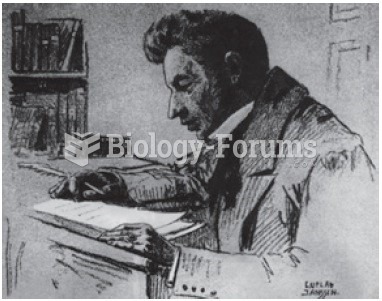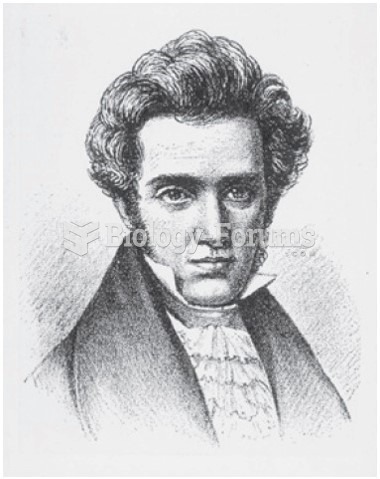|
|
|
Most fungi that pathogenically affect humans live in soil. If a person is not healthy, has an open wound, or is immunocompromised, a fungal infection can be very aggressive.
The familiar sounds of your heart are made by the heart's valves as they open and close.
Sperm cells are so tiny that 400 to 500 million (400,000,000–500,000,000) of them fit onto 1 tsp.
Adults are resistant to the bacterium that causes Botulism. These bacteria thrive in honey – therefore, honey should never be given to infants since their immune systems are not yet resistant.
The use of salicylates dates back 2,500 years to Hippocrates's recommendation of willow bark (from which a salicylate is derived) as an aid to the pains of childbirth. However, overdosage of salicylates can harm body fluids, electrolytes, the CNS, the GI tract, the ears, the lungs, the blood, the liver, and the kidneys and cause coma or death.
 Plasma protein binding and drug availability: (a) drug exists in a free state or bound to plasma pro
Plasma protein binding and drug availability: (a) drug exists in a free state or bound to plasma pro
 Plasma protein binding and drug availability: (a) The drug exists in a free state or is bound to ...
Plasma protein binding and drug availability: (a) The drug exists in a free state or is bound to ...





